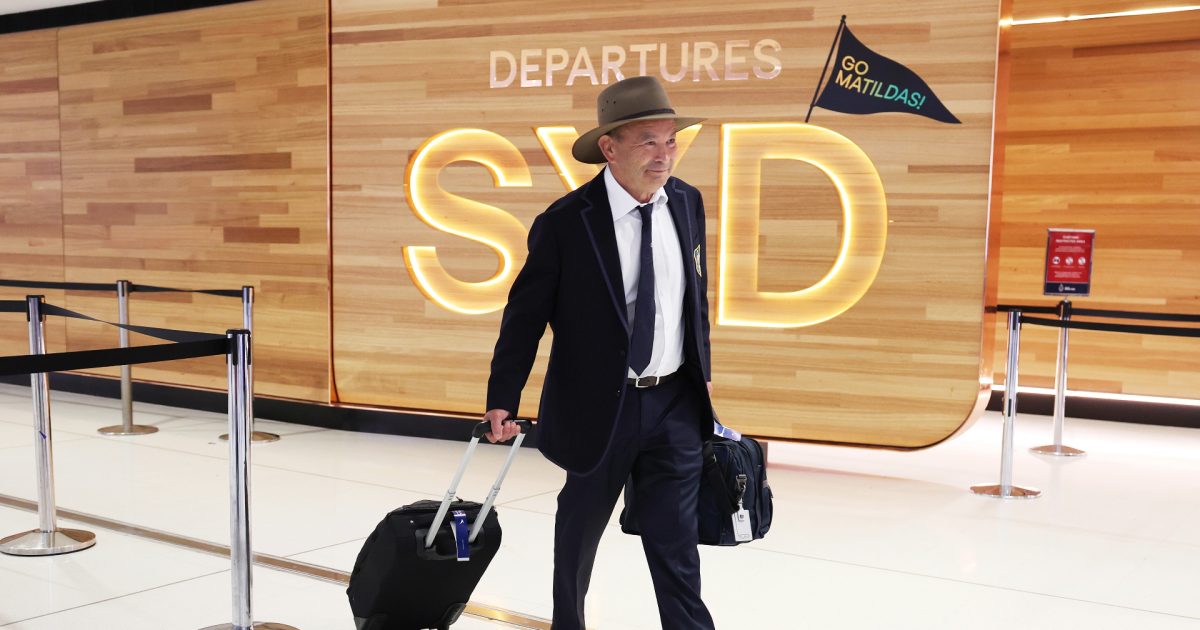Eddie Jones' 'breaking point' revealed over his decision to walk

Rugby Australia boss Phil Waugh believes Eddie Jones walking away from the remaining four years of his contract is the “sensible outcome” after the Wallabies’ shambolic World Cup campaign.
And having learnt some harsh lessons, Waugh says RA won’t be rushed into finding a replacement after the governing body formally accepted Jones’s resignation just 10 months into his five-year deal on Tuesday.
Jones’s dramatic departure ends the most embarrassing year in Australian rugby history after his greenhorn Wallabies failed to progress out of the pool stages of a World Cup for the first time.
The Wallabies also endured record losses to Fiji and Wales, with Jones only managing two wins from his nine Tests in 2023.
“The campaign was clearly very disappointing and I think a proud rugby nation like Australia for us to perform the way we did was very, very disappointing,” Waugh said.
“Certainly the expectations of the organisation, the expectations of rugby supporters, all Australians, it was very, very disappointing.
“We’ve been working with Eddie through the process and think we ended up at a sensible outcome.”
Jones had been heralded as the Wallabies’ saviour when appointed as a ‘captain’s pick’ by chairman Hamish McLennan after the ruthless axing of Dave Rennie.
He coached Australia to the World Cup final in 2003 and took England to the 2019 decider before being sacked late last year after seven straight defeats.
But Jones made a series of confounding decisions on his return to the Wallabies hot seat, including naming an inexperienced World Cup squad and omitting long-serving skipper Michael Hooper and seasoned playmaker Quade Cooper.
Australia’s players were also rocked when Jones was linked with the Japan coaching vacancy. He was forced to deny he’d interviewed for the role just days out from the tournament opener in Paris.
Two weeks ago, Jones insisted he was “100 per cent committed” to overseeing the Wallabies through to the next World Cup, on home soil in 2027.
But by last weekend he had offered his resignation to the RA hierarchy.
The breaking point for Jones was RA lacking the finances to fast track the move to centralisation and greater alignment between Australia’s five Super Rugby clubs.
“When we think about not just the high performance elements but also community funding pathways, I’ve gotta be fiscally responsible as to how we spend our money,” Waugh said.
“Certainly running high-cost programs in an environment where we’re fiscally challenged we’ve got to be really sensible in the end.”
It’s believed Jones will walk away from his hefty contract without a payout.
He insisted he had no other international role to go to, including the Japan position which has yet to be filled.
As a member of the board that chose to parachute Jones in to the role, Waugh accepted his own role in the disastrous appointment and even apologised to Australian fans.
But he wouldn’t be drawn on whether McLennan, or any other heads must roll, and insisted Australian rugby was headed in the right direction ahead of hosting the 2027 global showpiece plus the British and Irish Lions in 2025.
Waugh said it was important to find the right replacement for Jones, rather than fill the role hastily, and isn’t concerned about coaches being scared away after the Wallabies’ alarming fall from grace.
“Coaches are pretty ambitious,” he said.
“I think it’s a pretty attractive role for top coaches.”
World Cup winner Stephen Larkham and fellow former Wallabies assistant Dan McKellar are expected to be RA’s top targets to replace Jones.
Larkham is currently coaching the ACT Brumbies after taking over from McKellar, who is head coach at Leicester Tigers in the UK.
McKellar was Rennie’s forwards coach, and believed to be viewed as next in line to succeed the Kiwi, but resigned earlier this year when Jones was appointed to the top job.
Waugh wouldn’t rule out Michael Cheika, who guided Australia to the 2015 World Cup final, making a return, or outgoing All Blacks coach Ian Foster, fresh off plotting New Zealand’s path to the final in France, as other potential candidates.












































































If they wants to be winners again they must get Nick Mallett
Foster didn’t “plot” anything. The NZRU forced a blunt intervention 15 months ago resulting in the sacking of his two main assistant coaches, something he did not want to do. He barely survived himself. The guiding forces behind the ABs since then, were Jase Ryan & Joe Schmidt. Before them, the ABs were definitely looking DOA for RWC2023. Their recruitment sparked optimism.